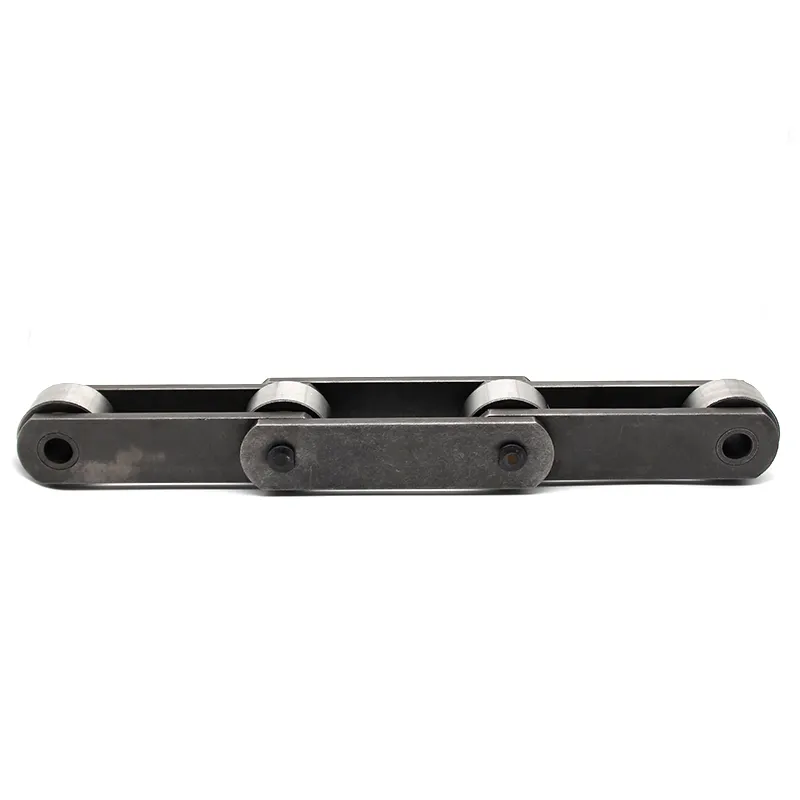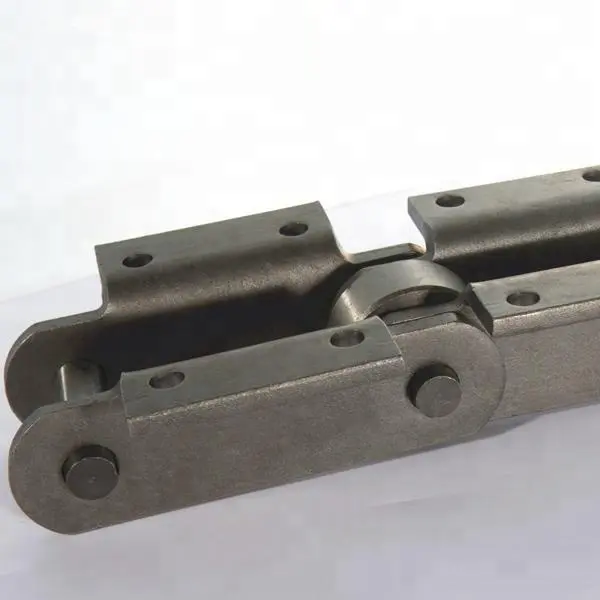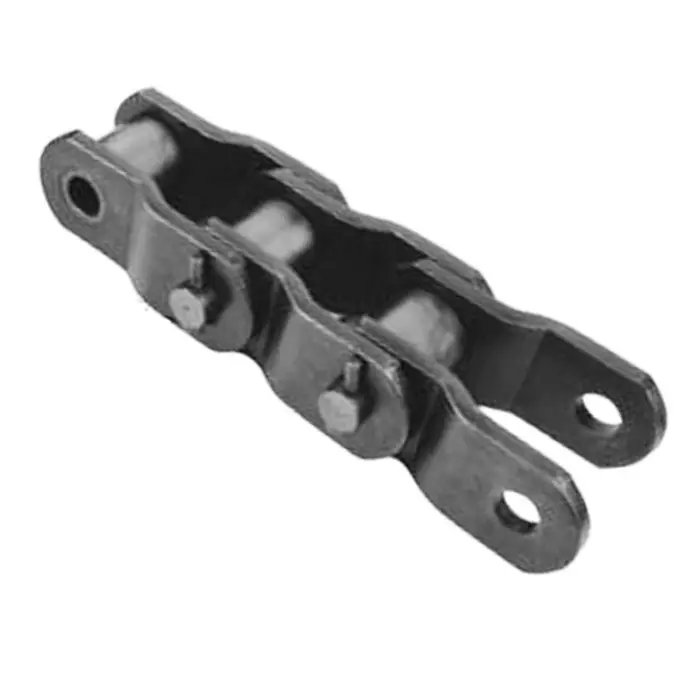Product Description
Product nime: link chain.
Place of origin: HangZhou of ZheJiang ,China.
Brand: Yuantong.
Size: 1mm-30mm.
Surface: Elector Galivanizd (Hot Dip Galivanized,
Polished, Self-color).
1. How long is your delivery time?
Generally it is 5-10 days if the goods are in stock. or it is 30-35 days if the goods are not in stock, it is according to quantity.
2. Do you provide samples ? is it free or extra ?
Yes, we could offer the sample for free charge but do not pay the cost of freight
Real factory , own our galvanizing factory , the price and quality could be 100% guaranted !
Take us, take the world!
| Usage: | Transmission Chain, Drag Chain, Conveyor Chain, Dedicated Special Chain, Link Chain |
|---|---|
| Material: | Iron |
| Surface Treatment: | Electroplating |
| Feature: | Heat Resistant |
| Chain Size: | 1/2"*3/32" |
| Structure: | Welded Chain |
| Samples: |
US$ 0/Meter
1 Meter(Min.Order) | |
|---|

What are the environmental considerations when using mill chains?
When using mill chains in industrial applications, several environmental considerations should be taken into account. These factors are important for sustainable and eco-friendly operations. Here are the key environmental considerations:
1. Lubrication: Proper lubrication of mill chains is essential for reducing friction and wear, which can lead to chain failure and increased energy consumption. Using environmentally friendly lubricants can minimize the impact on the environment.
2. Noise and Vibration: Excessive noise and vibration from chains can negatively impact the surrounding environment and workers’ well-being. Choosing chains with low noise and vibration characteristics can help maintain a more pleasant and safe working environment.
3. Material Selection: Opting for chains made from materials with low environmental impact, such as recycled or sustainable materials, can contribute to eco-friendliness.
4. Chain Recycling and Disposal: Implementing proper chain recycling and disposal practices ensures that end-of-life chains are managed in an environmentally responsible manner.
5. Chain Maintenance: Regular maintenance of mill chains is crucial to prevent premature wear and reduce the likelihood of environmental contamination from chain breakages.
6. Energy Efficiency: Selecting energy-efficient chain designs and maintaining proper tension can lead to reduced energy consumption and lower greenhouse gas emissions.
7. Preventing Chain Contamination: Keeping chains clean and free from debris can prevent potential environmental pollution when used in applications handling sensitive materials.
8. Compliance with Regulations: Adhering to environmental regulations and standards is essential to minimize the impact of chain usage on the environment.
9. Environmental Certification: Some chain manufacturers offer products with environmental certifications or comply with international standards for sustainability, providing assurance of eco-friendly practices.
10. Application-Specific Considerations: Different industries and applications may have unique environmental challenges. Considering these specific factors when selecting and using mill chains is vital.
By taking these environmental considerations into account, industries can work towards reducing their ecological footprint and contributing to more sustainable practices in their chain usage.

Can mill chains be used in the packaging and bottling industry?
Yes, mill chains can be used in the packaging and bottling industry for various material handling and conveying applications. The packaging and bottling industry involves the efficient and precise movement of products, containers, and packaging materials throughout the production process. Mill chains offer several advantages that make them suitable for these applications:
- Precision and Accuracy: Mill chains provide accurate and reliable material transfer, ensuring that products are positioned correctly during the packaging and bottling process.
- High Load Capacity: The industry often deals with heavy containers and products, and mill chains are designed to handle significant loads while maintaining their performance.
- Smooth Operation: Mill chains offer low friction and reduced noise during operation, contributing to a smooth and efficient production line.
- Automation Compatibility: Mill chains can be integrated into automated packaging and bottling systems, enabling seamless and precise material handling.
- Flexible Configurations: Mill chains come in various sizes and configurations, allowing them to be tailored to the specific needs of the packaging and bottling processes.
- Low Maintenance: With proper maintenance, mill chains can have a long service life and minimal downtime, supporting continuous production.
- Corrosion Resistance: For applications where exposure to moisture or chemicals is a concern, corrosion-resistant mill chains can be used to ensure reliable performance.
In the packaging and bottling industry, mill chains are commonly used in conveyor systems, transfer lines, and material handling equipment. They are essential for maintaining the efficient flow of products from one stage of the packaging process to another. Additionally, the precision and reliability of mill chains contribute to consistent product quality and production output.
Overall, mill chains play a crucial role in optimizing the packaging and bottling processes, ensuring that products are handled efficiently and packaged accurately for distribution and consumption.

Can mill chains be used in grain milling and food processing applications?
Yes, mill chains are commonly used in grain milling and food processing applications due to their ability to handle bulk materials and withstand harsh operating conditions. Here’s how mill chains are utilized in these industries:
1. Grain Milling: Mill chains are extensively used in grain milling facilities to transport grains, such as wheat, corn, rice, and oats, through various stages of the milling process. They are used in conveyors to move grains from one processing unit to another, including storage bins, cleaning machines, separators, and milling machines. Mill chains in grain milling applications must be resistant to abrasion and corrosion, as grains can be abrasive and may contain moisture or other contaminants.
2. Food Processing: In the food processing industry, mill chains are employed to handle a wide range of food products, including fruits, vegetables, meat, dairy, and bakery items. They are used in conveyors and processing equipment to move raw materials and finished products throughout the production process. Food-grade mill chains are essential to ensure hygiene and prevent contamination of food products. These chains are designed with materials that are safe for direct contact with food and are easy to clean and maintain.
Both grain milling and food processing require reliable and efficient material handling systems to maintain the quality and integrity of the products. Mill chains play a crucial role in ensuring smooth and consistent movement of materials, contributing to the overall efficiency and productivity of these industries.


editor by CX 2023-10-20
